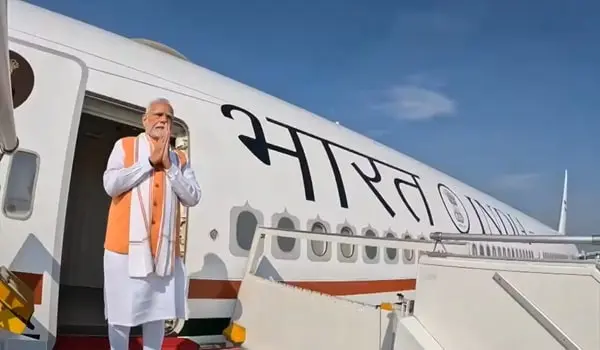India’s Prime Minister Narendra Modi embarked on an ambitious five-nation diplomatic tour from July 2–9, 2025, covering Ghana, Trinidad & Tobago, Argentina, Brazil, and Namibia. This journey, his longest overseas tour in the past decade, marks a significant push to expand India’s influence across the Global South.
The trip began in Ghana, where Modi became the first Indian PM in over 30 years to visit the West African nation. There, he signed agreements to boost trade in agriculture, pharmaceuticals, and digital technology. The two countries pledged to cooperate on vaccine production, strengthening Africa’s health security. Modi also addressed Ghana’s Parliament, highlighting India’s commitment to South-South cooperation.
Next, in Trinidad & Tobago, a country with a large Indian diaspora, Modi received a rousing welcome. The visit celebrated 180 years of Indian arrival, reinforcing cultural and historical bonds. He also announced a $250 million line of credit for infrastructure projects, with a focus on renewable energy and education.
Argentina offered a chance for India to deepen ties in South America. Meetings with President Javier Milei focused on enhancing cooperation in mining rare earths and lithium — crucial for India’s electric vehicle ambitions. Both leaders discussed strategies to counter economic instability in the Global South, agreeing to set up a joint task force on financial resilience.
In Brazil, Modi participated in the BRICS summit alongside leaders of Brazil, Russia, China, and South Africa. Discussions centered on expanding BRICS membership, establishing a BRICS currency alternative, and coordinating positions on global conflicts. India used the platform to advocate for a permanent seat at the United Nations Security Council, garnering cautious support from Brazil and South Africa.
The final leg in Namibia strengthened India’s strategic footprint in Africa. Agreements were signed on defense cooperation, space technology sharing, and sustainable mining. Modi’s speech emphasized India’s “Africa First” policy and promised technical assistance in education and skills development.
This tour holds profound implications for India’s foreign policy. It signals a clear pivot towards the Global South at a time when major powers like the US and China vie for influence in developing regions. By securing new energy, mineral, and defense partnerships, India aims to reduce dependence on volatile markets and diversify strategic resources.
Domestically, the tour also plays well for Modi’s image ahead of state elections, projecting him as a global statesman capable of championing India’s interests abroad.
Yet challenges remain. Critics argue India must back these diplomatic overtures with consistent investment and timely delivery of promises, lest relationships become symbolic rather than transformative. As global geopolitics shifts, sustaining trust with partner nations will require more than headline-grabbing visits.
Nevertheless, Modi’s whirlwind tour underscores India’s evolving identity as an assertive, engaged power willing to shape the international order — and not merely react to it.

